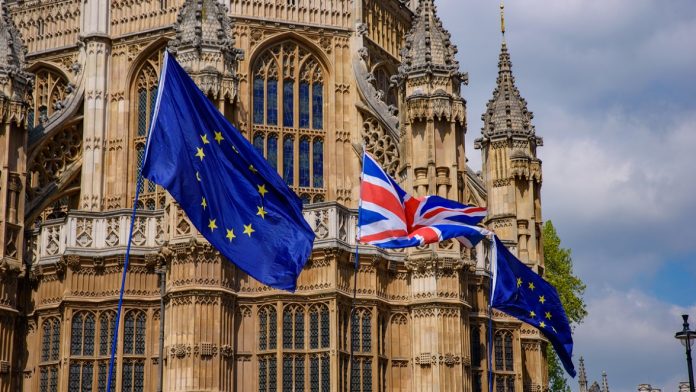The pound climbed steadily across the previous session on renewed Brexit hopes, whilst German recession fears sent the euro lower. The pound euro exchange rate rallied to a peak of €1.1082, its highest level since late July. The pair is holding steady in early trade on Wednesday.
| What do these figures mean? |
| When measuring the value of a pair of currencies, one set equals 1 unit and the other shows the current equivalent. As the market moves, the amount will vary from minute to minute.
For example, it could be written: 1 GBP = 1.13990 EUR Here, £1 is equivalent to approximately €1.14. This specifically measures the pound’s worth against the euro. If the euro amount increases in this pairing, it’s positive for the pound . Or, if you were looking at it the other way around: 1 EUR = 0.87271 GBP In this example, €1 is equivalent to approximately £0.87. This measures the euro’s worth versus the British pound. If the sterling number gets larger, it’s good news for the euro. |
The pound advanced in the previous session on good news for Brexit from all angles, decreasing the likelihood of a no deal Brexit.
Firstly, MP’s plotted to prevent a no deal Brexit. Led by the opposition leader, Jeremy Corbyn, a pact was agreed to by six opposition parties to use a bill to force Prime Minister Boris Johnson’s hand rather than a vote of no confidence. The six parties involved are Labour, the Scottish National Party, Liberal Democrats, Plaid Cymru, Greens and the Independent group for change. This is the first time that there has been an agreed cross party plan to prevent a disorderly Brexit.
Secondly optimism surrounding renewed Brexit talks is boosting investors’ hopes that a new Brexit deal could still be achieved. Following Boris Johnson’s talks with German Angela Merkel and France’s Emmanuel Macron, the mood has improved and a no deal Brexit no longer looks inevitable.
| Why is a “soft” Brexit better for sterling than a “hard” Brexit? |
| A soft Brexit implies anything less than UK’s complete withdrawal from the EU. For example, it could mean the UK retains some form of membership to the European Union single market in exchange for some free movement of people, i.e. immigration. This is considered more positive than a “hard” Brexit, which is a full severance from the EU. The reason “soft” is considered more pound-friendly is because the economic impact would be lower. If there is less negative impact on the economy, foreign investors will continue to invest in the UK. As investment requires local currency, this increased demand for the pound then boosts its value. |
Today all eyes will be on David Frost, British Foreign Minister as he heads to Brussels in search of a solution to the Irish backstop issue.
Euro Lower On German Recession Fears
The euro was out of favour in the previous session amid growing fear of a recession in Germany. Data confirmed that the German economy contracted -0.1% quarter on quarter in the second quarter. The data showed that the economy contracted on declining exports as the largest economy in Europe remains caught up in the US — Sino trade dispute. Exports fell more strongly than imports, wiping off 0.5% from overall economic expansion. With business sentiment indicators also declining the outlook for Germany is looking shaky.
Today investors will be looking towards German consumer sentiment figures to see whether the slump in the manufacturing sector is spilling into Germany’s consumer sector. So far, the consumer confidence figure has remained resilient. Should today’s figures show decline in confidence the euro could fall.
Declining confidence could be an early indicator that consumers will hold back on spending, slowing the economy further. Under these conditions the European Central Bank will be more inclined to cut interest rates at its policy meeting in September.
| Why do interest rate cuts drag on a currency’s value? |
| Interest rates are key to understanding exchange rate movements. Those who have large sums of money to invest want the highest return on their investments. Lower interest rate environments tend to offer lower yields. So, if the interest rate or at least the interest rate expectation of a country is relatively lower compared to another, then foreign investors look to pull their capital out and invest elsewhere. Large corporations and investors sell out of local currency to invest elsewhere. More local currency is available as the demand of that currency declines, dragging the value lower. |





